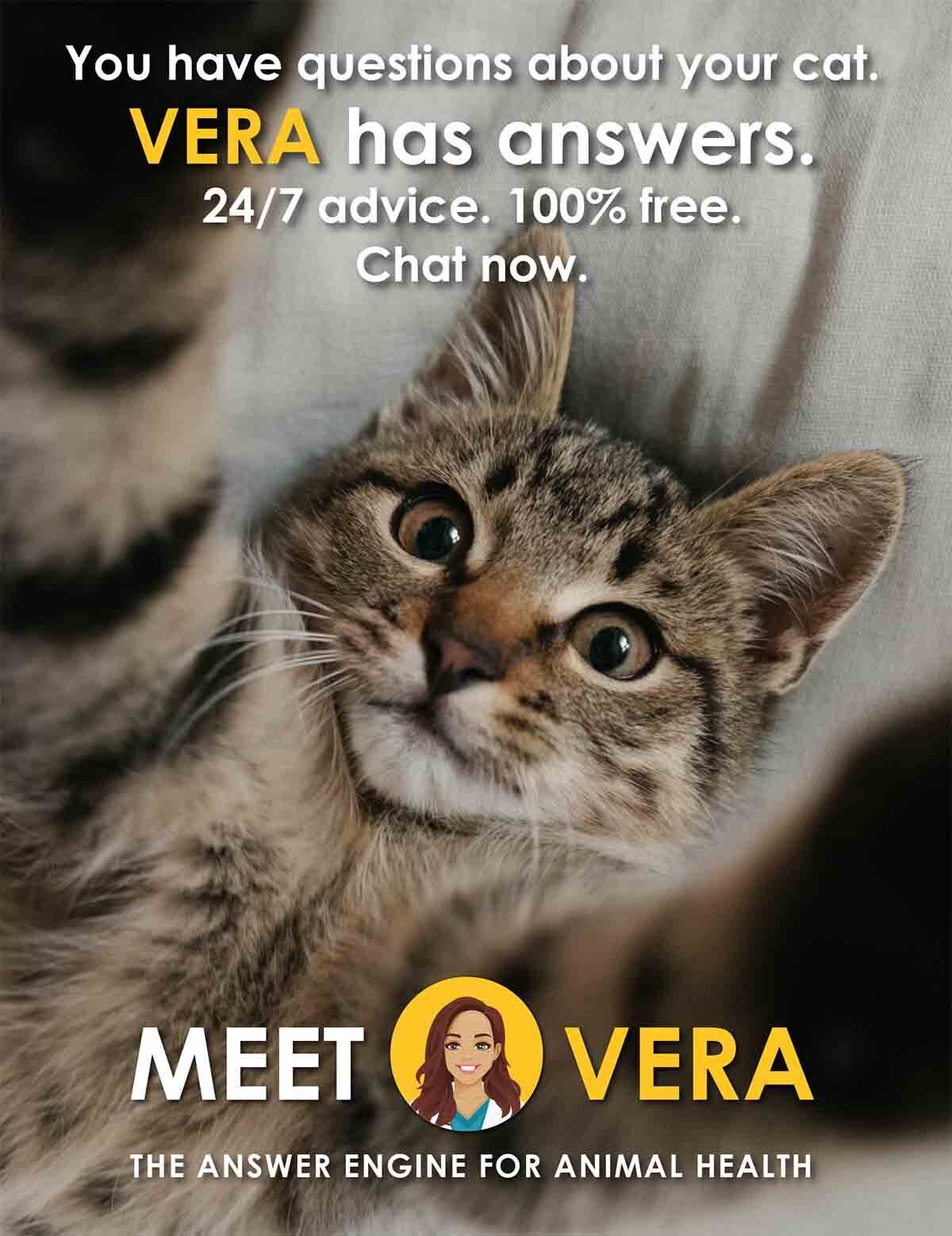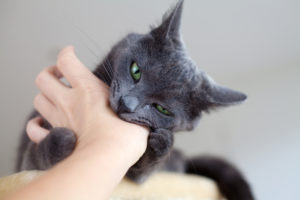There is nothing worse than knowing your beloved cat is in pain. Maybe the only thing worse than that is not knowing how you can help them. You question how you can heal your buddy, what they need from you, and how to get them to a pain-free zone.
We all would do anything to help our pets feel better. They’re our little fluffy babies, after all! Whether your cat suffers from chronic pain or pain caused by an injury, there are both natural and medicinal ways to help them feel better.
If you are treating your cat for an injury or after surgery, your veterinarian might prescribe them antibiotics or pain medication. If you notice that your cat is suffering, there are other remedies to help alleviate pain or symptoms to include in your vet’s treatment plan.
But, not everything that you read on the internet is true! Some home remedies are more of a myth than a fact, but we’ve got you covered. Keep reading to learn more about natural pain relief remedies for cats.
What Causes Pain in Cats?
There are many ways your cat could be feeling discomfort, but first, we must identify their source of pain as fast as possible to treat them properly.
Surgery
If your cat has recently undergone surgery, they might feel sore and uncomfortable after they are discharged from the hospital. If your cat has been prescribed painkillers, this discomfort might be more apparent once the bottle is empty.
On the other hand, if your cat has had surgery in the past, maybe for a broken bone or to remove a tumor, they might experience pain months or even years later. This especially is common when surgery is done on a bone or a sensitive area. This type of pain might not require more pain medication, which is where natural remedies could really shine.
Trauma
One of the more immediate causes of pain could be trauma. This would be if your cat jammed a body part or got their paws stuck in a door hinge. It also could be related to recent surgery but likely would be an event that would cause bruising, a sprain, or a gash.
You might recognize that a trauma has just happened to your cat because they will react immediately to the pain. Their reaction might seem scary or abrupt, similar to how the trauma occurred. However, if you aren’t home at the time or aren’t in the room with your cat, you may not realize this event occurred until later.
Arthritis
A cat that is dealing with arthritis might experience extreme pain that looks like swelling, soreness, stiffness, lameness, or a lack of flexibility. Depending on where the arthritis is flaring up, your cat might struggle to walk or move fluidly. The pain can range from constant to occasional, with flare-ups that are sometimes random.
Digestive Issues
A cat experiencing digestive issues might have severe inflammation in their stomach that would disrupt a normal digestive flow. Your cat might struggle to keep food down comfortably, have trouble moving around, and sometimes, the stomach can even shift around inside your cat’s body.
Cancer
Cancer is another potential cause of pain in your cat’s body. Cancerous tumors might press on the tissues and bones of your cat’s body, causing intense discomfort. Cancer can also cause inflammation, making it challenging to move around and feel comfortable. Your cat’s appetite and functionality might decrease due to this ailment as well.
How Do You Know Your Cat Is in Pain?
You know your cat, and you know when something is wrong. Not only might you experience a gut feeling, but your cat will probably let you know how they are feeling. However, if you have a strong, silent type, your cat might not want to alarm you — you’ll need to keep a close eye on them.
There are a few signs to look out for; however, this is not an exhaustive list. If you recognize any of the following changes in their behavior, you should contact your cat’s veterinarian to figure out the next best steps.
Weakness
There’s a difference between a lazy cat nap and pain-induced lethargy. If your cat is beginning to act lethargic, it might be a sign of pain. The pain might make them nauseous, woozy, dizzy, or tired, resulting in an overall increase in weakness.
If you notice that your cat is not moving as much as usual, having difficulty standing up or staying up, doesn’t want to eat, or won’t play his favorite games, this could be a sign that something worrisome is afoot.
Restlessness
At the opposite end of feeling weak, your cat might instead feel very restless. Your cat might not be able to sit in one spot for too long or at all. They might be unable to put pressure on a certain area of their body for too long, causing them to move around more frequently.
If they are pacing, making noise, and acting a bit confused or distressed, this might be a sign. While restlessness may look similar to boredom, restlessness generally accompanies a decreased appetite and reduced desire to play.
Vocality
Your cat might let you know they are in pain by simply telling you through loud and consistent noises. Perhaps your cat might express a loud, high-pitched howl or a low and long moaning sound. If your cat is not normally vocal, this could be a clear indicator of the pain they are experiencing.
Now, if your cat is a talker, it might be normal to hear them speaking to you (or to themselves). If you notice an uptick of vocality, accompanied by other symptoms, like the ones mentioned here, this might be a sign that they are in pain.
Aggressiveness
Another sign of pain in cats is an overall change in their behavior that might lead them to act out more aggressively. This might look like them swatting or hissing at you when you come close to a sore spot. They might lash out at you if they are trying to protect their body, even though they don’t mean to hurt you!
A cat that is experiencing pain is going to want to protect themselves, and who could blame them?
Lack of Appetite
If your cat is experiencing pain, one of the greatest indicators of their discomfort is their lack of appetite.
This could be a result of their weakness, inflammation in their stomach, or a symptom like cancer. If you notice your cat is not eating, chat with a veterinarian to discuss your options. Take note of any other symptoms that might accompany your cat’s lack of appetite.
Limping
Limping is another sign that your cat is experiencing pain. They might have an issue with the paw or leg they are limping on, including a fracture, sprain, or even a splinter. Additionally, your cat might be limping due to stiffness or numbness that causes them to struggle walking.
Myths Related to Pain Relief for Cats
You may come across myths related to your cat’s diet and how to relieve them of any pain; there is a lot of information out there, and it can be difficult to figure out what is true and what is false.
When it comes to your pet’s health, you should always consult with your veterinarian or ask AskVet about whether or not a piece of information is correct or not.
Some myths that you might come across are:
Myth: Pain Medication Is Unsafe
Cats shouldn’t take any medication that is prescribed or over-the-counter medications meant for humans.
But if your cat isn’t feeling well and natural home remedies aren’t working, consider consulting with your vet about pain medications. Your DVM can help you to administer the right dose in order to hone in on a specific pain or issue.
Myth: Cats Can Get Over It On Their Own
Yes, we all hear about how cats have nine lives, but that doesn’t mean they don’t feel pain or can get over it easier. Yes, research suggests that a cat’s purr hits the sweet spot of 25 and 150 Hertz, which is associated with healing capabilities. However, cats still need us to take care of them (even if some of our feline friends don’t quite act like it). If treatment is delayed, the pain could worsen.
It’s true that cats are fierce, strong, and resilient animals, but they still need proper health care, just like the rest of us!
Myth: A Quiet Cat Is a Happy, Healthy Cat
It could be that your cat has gotten so used to the pain that they no longer can keep up with vocalizing it. If your cat has become accustomed to the feeling, they will tough things out and might stay quiet. How cats communicate their struggles will be unique to your specific cat. We must be mindful of the changes in their behaviors.
Natural Remedies for Pain Relief
If your vet doesn’t recommend feline pain medication for long-term use, there are natural and home remedies that might help relieve your pet’s pain. It’s important to consider all options, including deciphering what remedies are real and which might just be a myth.
Supplements
Supplements are an easy way to stay on top of your cat’s health, even before you run into any health issues. Supplements contain vitamins that keep your cat’s body functioning properly. They also help to reduce possible inflammation, which can be helpful if your cat is struggling with arthritis or digestive issues.
You don’t want to give your cat too many supplements as an influx of certain vitamins, like D3, could be toxic to your cat. Consult with a veterinarian about what your cat should be taking for supplements to reduce the risk of harm.
Once you have the go-ahead from your vet, you now have to tempt your cat to take the supplement. You can find supplements in the form of a tablet or a liquid that gets mixed in with their food. It may take some trial and error to find one your cat tolerates.
Fish Oil
Fish oil is also a supplement; it’s a specifically beneficial one that you might see marketed frequently in pet stores or at veterinarian offices. It can be a preventative health measure but can also come in clutch when a problem arises.
Fish oil is high in Omega-3s, which helps to naturally reduce inflammation. It also boosts immune function and may help fight against dementia and promote cognitive functioning. You can get these in tablets or a liquid that can be added to your cat’s food.
CBD
Before giving your kitty some CBD, consult your veterinarian — CBD affects all cats differently. Just like people, CBD supports cats’ endocannabinoid system (ECS).
CBD has soothing properties that can help make your cat feel calmer. CBD also reduces physical pain and brings anxiety down.
You’ll want to determine the proper dosage for your cat and find a highly-regarded and reputable CBD brand. CBD usage can vary depending on weight, method of ingestion, and how frequently it’s being used.
You might come across CBD treats, CBD oils, or CBD tablets. Treats and tablets are likely to be easier to determine the exact dosage you are giving out because they are measured before being made. With oil, you can give more or less each time, so it’s not exact (unless you measure it out the same each time).
Curcumin
Curcumin is an active ingredient from turmeric with a natural anti-inflammatory property that can be especially good for joint pain and arthritis.
Some pet parents have found success with mixtures of turmeric powder, coconut oil, and a crack of black pepper, but too much coconut oil can cause loose stools and weight gain. Consult with your veterinarian to determine the appropriate amount to add to your cat’s food.
Acupuncture
If you want to find a way to relieve your cat’s pain without adding anything to their diet, pet acupuncture might be your solution. Acupuncture calms irritated nerves, which can be good for cats with chronic pain. Schedule your cat with a veterinary acupuncturist; this practice differs between cats and people.
Acupuncture may relieve nerve problems by directly diving into the problem areas. It’s a safe method, but it really comes down to how much your cat can tolerate it. It’s not every cat’s favorite to sit still while dozens of needles are placed into their body!
Chiropractic work
Another non-ingestive natural pain relief remedy is chiropractic work. This is especially helpful for swelling or trauma irritating a specific spot. Cats with pain in their neck, back, legs, and arms can benefit from a readjustment. Adjustments could prevent future inflammation and swelling and can even help your cat stay flexible and active as they age.
Your cat might also get a nice massage from an animal chiropractor (to the point where you might become jealous of their amazing treatment). While you should not try any chiropractic work on your cat yourself, your feline chiropractor might be able to offer you some great advice for at-home additions to your pet’s care.
AskVet Is Here To Help
If you ever feel like you aren’t sure if something is true or helpful, working with AskVet can bring you the answers you are looking for. AskVet is an app that you can download and gain access to 24/7 care, including veterinarians and behaviorists. Now, for just $9.99, if you have any questions in relation to a natural home remedy for your cat, you can hop on the app and ask our professionals!
Need some assistance in a specific situation or looking for a lifestyle plan specifically made for your pet? Schedule an appointment with an AskVet Certified Pet Lifestyle Coach™ for unique, 24/7 care for every kind of pet in your household.
Sources:
Introduction To Digestive Disorders Of Cats – Cat Owners | MSD Veterinary Manual
Natural Anti-Inflammatory Agents For Pain Relief | NCBI
Cannabinoids In The Management Of Difficult To Treat Pain | NCBI
Chiropractic Adjustment for Animals | Veterinary Medicine at Illinois







